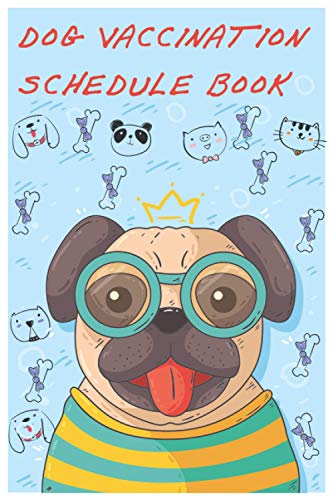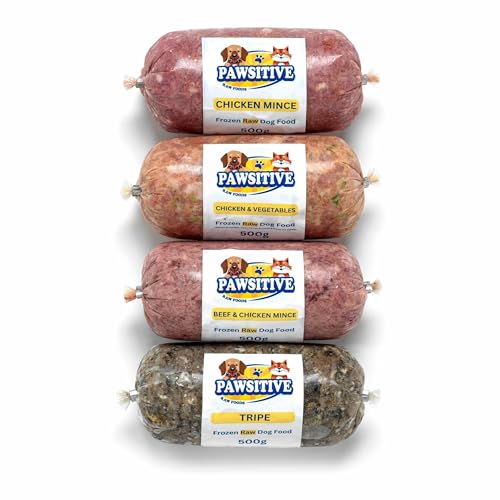




The immunity provided by vaccinations typically remains effective for three years, although some may last longer. Annual booster shots are no longer universally recommended for all types of immunizations. The core vaccinations, such as those for parvovirus, distemper, and adenovirus, generally offer extended protection after the initial series is completed.
Specific factors influence these durations, including the type of vaccine used, the age of your pet, and their overall health status. For example, puppies usually require a series of shots to build a strong immune response, while adult canines may only need boosters every few years. Consulting with a veterinary professional ensures you’re following the latest guidelines tailored to your furry friend.
It’s essential to keep track of vaccination records. Some regions may require proof of recent immunisations for certain activities, such as boarding or attending dog parks. Staying informed about your companion’s health needs can help you maintain their well-being and avoid any unnecessary risks.
Duration of Canine Immunisation
Immunisation for pets typically provides protection for various spans, often ranging between three to three years, depending on the type of injection. Core immunisations, such as those for parvovirus and distemper, usually offer extended defence. Non-core types may require more frequent updates.
- Parvovirus: Protection can last up to three years.
- Distemper: This vaccine also provides a safety net for about three years.
- Rabies: Depending on local regulations, coverage may extend from one to three years.
- Leptospirosis: Typically requires annual boosters.
Regular check-ups with a veterinarian ensure that your furry friend remains safeguarded. They may suggest titre tests to determine immunity levels, potentially reducing unnecessary vaccinations.
Always stay informed about the latest guidelines. For instance, if you manage an aquarium, understanding how to control ammonia in fish tank environments can parallel the need for vigilance in pet health. Explore more about this topic here.
Being proactive about immunisation schedules can lead to a happier and healthier companion. Take note of your pet’s records and consult with your vet regularly for tailored advice.
Understanding Vaccine Types and Their Durations
Core immunisations for your pet typically provide protection for three years or more. For example, the combination shot that covers distemper, parvovirus, and adenovirus is generally effective for this period. However, some states may require annual boosters, so it’s wise to check local regulations.
Non-Core Immunisations
On the other hand, non-core shots, such as those for Lyme disease or kennel cough, vary significantly in duration. These may require a booster every six to twelve months, depending on exposure risk and your pet’s lifestyle. Factors like geography and habits play a role in determining which non-core injections are advisable.
Factors Influencing Durability
Several elements influence how long protection lasts. The age of your pet at the time of receiving the injection can affect immune response. Younger animals may not hold immunity as strongly as older, fully developed ones. Stress and overall health also impact how effectively the body can maintain immunity. Regular check-ups with your veterinarian can help assess your pet’s specific needs and adjust their vaccination schedule accordingly.
Staying informed about your pet’s immunity is crucial. Keep records of all vaccinations and consult your vet to ensure your furry friend remains protected against preventable diseases throughout their life.
Factors Influencing Vaccine Longevity in Dogs
The duration of immunity provided by immunizations is influenced by several key factors. Understanding these can help ensure your pet remains protected against various diseases.
Age and Health Status
Young puppies have immature immune systems, which can affect how well they respond to shots. Older dogs may have weakened immunity. A healthy pet is more likely to maintain longer-lasting protection compared to one with underlying health issues.
Vaccine Type and Administration
The specific formulation of the injection plays a significant role. Live attenuated versions often provide prolonged immunity compared to inactivated types. Proper administration techniques, including timing between doses, also impact overall effectiveness.
| Factor | Description |
|---|---|
| Age | Young puppies and older canines may show different responses. |
| Health | Pre-existing conditions can shorten immunity duration. |
| Vaccine Type | Live vaccines typically confer longer-lasting immunity. |
| Administration | Proper timing and technique enhance effectiveness. |
Always consult with a veterinarian to determine the best schedule and types for your pet. Regular check-ups can help monitor immunity status and ensure ongoing protection.
Signs That Your Pup May Need a Booster Shot
If your pet exhibits any of the following symptoms, it might be time to consider an additional vaccination:
Frequent bouts of illness, such as vomiting or diarrhoea, can indicate a weakened immune response. If your furry friend seems lethargic or has a noticeable decrease in energy levels, this could signal the need for an update to their immunisation status.
Unexplained changes in behaviour, like increased aggression or withdrawal, may also be a cause for concern. For instance, if your canine companion suddenly becomes possessive over food or toys, you might want to investigate further. Check out this article on why does my dog get aggressive with food for more insights.
A decrease in appetite or refusal to eat can be linked to health issues, including insufficient protection from various diseases. If you notice that your pet is drinking more water than usual, this could also indicate an underlying problem related to their immunity.
Additionally, if your pooch has been exposed to other animals, especially in a kennel or grooming setting, it’s wise to consult your vet about the necessity of a booster. Regular check-ups are essential, and your veterinarian can provide tailored advice based on your pup’s health history.
Impact of Lifestyle on Vaccine Effectiveness
Regular exposure to different environments can significantly influence how well immunisation works in pets. For instance, if your furry friend spends most of their time indoors, they may have a lower risk of encountering certain pathogens compared to an adventurous pup who loves to explore parks and interact with other animals. This variation in lifestyle directly affects how often they might need a booster.
Diet plays a crucial role as well. A well-balanced nutrition regimen supports the immune system, helping it respond more robustly to immunisations. If your pet is on a high-quality diet rich in vitamins and minerals, they may maintain a stronger defence against diseases, potentially extending the time between necessary updates.
Stress levels are another factor. Pets that experience high stress, whether from changes in their environment or routine, can have a compromised immune response. This means that even if they are fully immunised, they might need additional doses sooner if they are frequently exposed to stressful situations.
Regular veterinary check-ups can help monitor your companion’s health and immunity status. Discussing any changes in lifestyle with your vet can lead to tailored advice, ensuring your pet stays protected effectively. Engaging in regular exercise also fortifies their overall health, supporting better responses to immunisations.
Lastly, social interactions matter. Pets that frequently mix with others at dog parks or daycare facilities may encounter various infectious agents, necessitating more frequent updates to their immunisation schedule. Keeping track of your pet’s activities and health can guide you in maintaining their health optimally.
Guidelines for Vaccination Schedules by Breed and Age
Puppies should receive their initial vaccinations between six and eight weeks of age, with additional doses typically given every three to four weeks until they reach around 16 weeks. For larger breeds, like Great Danes and German Shepherds, extending the vaccination schedule may be beneficial due to their slower immune system maturation. It’s wise to consult a vet for tailored advice based on your pet’s specific needs.
Adult Canines
For adult canines, a booster is generally recommended every one to three years, depending on the specific immunisation type. Smaller breeds, such as Chihuahuas and Dachshunds, may require more frequent boosters compared to larger counterparts. Keep in mind the lifestyle and exposure level; active pets that frequently interact with others may need more attention to their immunisation schedule.
Seniors and Special Needs
Senior canines, typically over seven years old, may require a modified approach. Regular health checks become more crucial, and adjustments in their vaccination schedule may be necessary to accommodate health conditions. Always discuss any concerns with your veterinarian to ensure the best approach for your cherished companion.
FAQ:
How long do core dog vaccines typically last?
Core dog vaccines, which include vaccinations for diseases like parvovirus, distemper, and adenovirus, generally provide immunity for three years or more. Some veterinarians recommend revaccination every three years based on current guidelines, but the duration can vary depending on the individual dog’s health and lifestyle.
What factors can influence the duration of vaccine immunity in dogs?
Several factors can affect how long a dog’s vaccine immunity lasts. These include the dog’s age, overall health, the specific vaccine used, and whether the dog has been previously vaccinated. Young puppies may not have strong immunity until they complete their vaccination series, while older dogs may have varying responses based on their health status. Environmental exposure to diseases can also play a role.
Are there any signs that my dog may need a booster vaccine?
While many dogs may not show obvious signs when their vaccine protection is waning, some indicators might include increased susceptibility to infections or illness. If your dog is frequently unwell or you notice changes in their behaviour or energy levels, it’s wise to consult your veterinarian. Regular check-ups can help determine if a booster is necessary.
Can I determine my dog’s vaccine status through a titre test?
Yes, a titre test can measure the level of antibodies in your dog’s blood to determine if they still have immunity to specific diseases. If the results show adequate levels, revaccination may not be necessary. However, titre testing is not always available for all vaccines, so discussing this option with your veterinarian is advisable.
What are the risks of not vaccinating my dog on schedule?
Failing to vaccinate your dog on schedule can lead to a higher risk of contracting serious and potentially fatal diseases. Illnesses like parvovirus and distemper can have severe consequences and are often difficult to treat. Keeping up with vaccinations helps ensure your dog remains protected, especially if they are exposed to other animals or environments where these diseases may be present.






